A.R. Mitchell's Blog, page 4
March 20, 2025
Secrets Part 3

Last week I walked through the mid-level stress response using a milk shopping trip as an example.
If you’re able to calm down and solve the stress causing problem, as in walking into the grocery store and getting the milk… the stress resolves. Its mission accomplished. Task is done. Threat is gone. You have the milk.
But there are plenty of life circumstances that are much higher stress and are not resolved as easily. And the body has plenty of other ways of revealing the “Why?”, of the stress - which may be a secret that your body was keeping from you for your protection.
We’ll stick with the mundane example of forgetting the milk. If you were able to get to the grocery store and get a carton of milk - the crisis is over. Your body doesn’t need to reveal why that was so stressful. There’s nothing to fix - you have the milk and you can calm down.
But, if stress levels continue to rise instead of resolving, this could mean that you could experience a flashback of getting yelled at for forgetting the milk.
A flashback is when you see, hear, feel, or in any way re-experience a stressful usually traumatic situation. It’s when your survival system brain acts as a bodyguard and protects the logic part of your brain.
However, this creates a small problem, because the logic part of your brain is in charge of time… so the incident of getting yelled at because you forgot the milk may have happened at four years old and you’re currently fifty-four… but now its right there in front of you.
You as grown up - get to be four again. You get to be yelled at for forgetting the milk.
And you as grown up - won’t be able to tell where you are, how old you are, or what’s going on.
Grown up you is not present.
Only child you is there.
And survival brain is now child you.
Grown up you has zero decision factor.
Most people think of flashbacks are only occurring people who have been through serious situations - mostly combat or war zone related. This isn’t true.
While military and war zone related flashbacks are given the most attention, there are a lot of people who have flashbacks who have never been in a war zone or experienced combat.
Here’s two videos:
Share Chronic Writer by VintageInkSlinger
Thanks for reading Chronic Writer by VintageInkSlinger! Subscribe for free to receive new posts and support my work.
March 13, 2025
Secrets Part 2
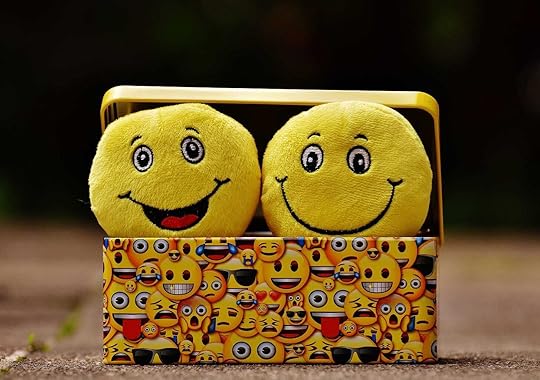
Part 2: Secrets
Last week we talked about secrets. They aren’t just person to person, sometimes our brains keep secrets from us in order to keep us safe.
This isn’t a lie, or a forgetfulness. It’s not a defect. It’s a protection mechanism.
And there are several layers to this, and some of the circumstances get pretty dark. I will try to keep it PG and give a warning before I get there.
We’ve all been really stressed for a big event, gone to do something utterly mundane and realized that we’ve forgotten what we were planning on doing. This is forgetting the milk. Or walking into a room and not remembering what we were going to get.
This is a brain focus thing. Our bodies are stressed, our minds are trying to get all the details together - some things are going to get lost in the mental shuffle in the brain’s quest to not get overwhelmed.
Now, it’s not a deep dark secret that you forgot the milk. But survival brain could drag you back to a time you got yelled at for forgetting the milk.
You won’t have to be aware of it - but your body will feel extra tense, and your hands might shake. You might be more emotional and easily frustrated.
This is a survival trait, because the brain is taking you back to a time when your survival was threatened and its warning you by these extra signals and higher emotions, that you need to remember to get the milk.
You might ignore these things too, because grown up you is going, “that’s silly - why am I shaking?”
But the body remembers. The body got rewired when you were yelled at, so it’s wired into your nervous system, “Stress! Stress! Stress! Remember the milk!”
However, the body doesn’t read individual memories - it just reads, “Stress!!!!!!!!”
Unfortunately that means that being stuck in traffic, forgetting the milk, or being chased by a lion all send the same signals.
If you’re able to calm down and solve the problem, as in walking into the grocery store and getting the milk… the stress resolves. Its mission accomplished. Task is done. Threat is gone. You have the milk.
But there are plenty of life circumstances that are much higher stress and are not resolved by getting the milk. And unfortunately, when we try to stuff our emotions into boxes of control - our body might escalate the stress response to the next level.
Share Chronic Writer by VintageInkSlinger
Thanks for reading Chronic Writer by VintageInkSlinger! Subscribe for free to receive new posts and support my work.
March 6, 2025
Secrets Part 1
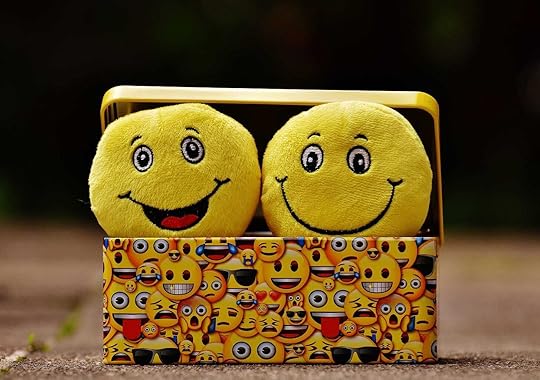
Secrets are something that is kept from the knowledge of others or shared only with a few. To most people the knowledge is hidden.
Secrets can be good or bad, big or little.
For my grandmother’s ninetieth birthday we threw her a surprise party. The whole family kept it secret from her. She kept it secret from us that she knew about the ‘surprise’ for six months.
That was a good secret… no one was hurt or forced into a situation where they were without protection and support. But there are plenty of families where secrets are kept and embellished to cover over horrible things.
One of the big rules about secrets is that adults should never tell children to keep their secret safe from other adults. Also secrets should not be used to hurt others, especially in adult and child relationships.
I’m really trying to keep the dynamics of this PG, because we’re dealing with healing and emotions and I don’t want to overwhelm anyone, because we are fragile when opening the Danger Box and dealing with what’s inside.
And that’s ok. Being fragile is part of healing - just like being emotionally unable to feel or process emotions is part of trauma.
Again, you have to be safe enough to feel things and know your limits.
I want to do a part two on secrets, because sometimes our brains keep secrets from us and it’s a survival technique.
That mechanism gets darker - so consider this a content warning for next week.
Share Chronic Writer by VintageInkSlinger
Thanks for reading Chronic Writer by VintageInkSlinger! Subscribe for free to receive new posts and support my work.
February 27, 2025
Memories
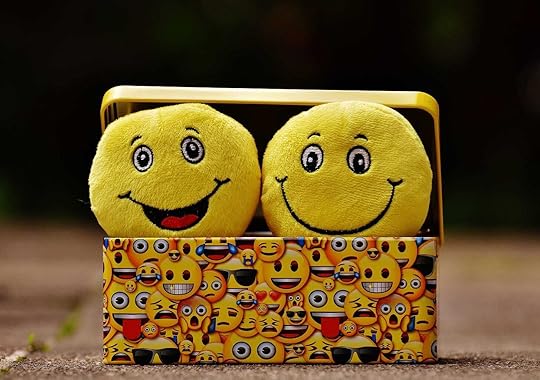 Memories are things that happened in the past that were meaningful or impactful. Some of them are positive. Some are negative.
Memories are things that happened in the past that were meaningful or impactful. Some of them are positive. Some are negative.Some will just be remembered by your brain in the same casual manner as, “Darn, I forgot the milk.”
And some will be remembered by your body as in how your body physically shuddered and your shoulders pinned inward and your hands shook when you were yelled at for forgetting the milk.
Both of them are memories, but one is more terrifying than the other because it’s a memory from the past physically impacting your present.
Memories that leave physical impacts or have physical reactions aren’t stronger than other memories, but they do seem scarier.
This happens because survival brain doesn’t process time. Everything is immediate.
Survival brain needs logic brain to say, “that was 30 years ago. I’m a grown up now, I don’t have to be afraid.”
As ugly as these memories are, they need to be confronted in a safe way. That means that you’ll need to constantly remind yourself that you are safe and you might want to have someone with you who you trust to also remind you of that.
This is really difficult, so try to find someone who’s trained, or have something on hand to calm you.
Something we can all have is cold water. Cold water helps calm the nervous system.
I will do a post on the nervous system and how it works, along with why cold water helps the healing process, but for now the experts are recommending: drink water.
Share Chronic Writer by VintageInkSlinger
Thanks for reading Chronic Writer by VintageInkSlinger! Subscribe for free to receive new posts and support my work.
February 20, 2025
What’s in the Danger Box

We talked about how opening the danger box was the way to learn how to deal with our emotions.
I want to talk about what else is in the danger box. There will be memories, secrets, lies and some tough physical stuff.
That doesn’t mean you shouldn’t try to face the Danger Box. It just means that this isn’t like looking at last years vacation photos.
Instead, it’s tough. These things are decades old. And often they don’t center around one incident. They could - but more often than not, these are a hodge podge of life experiences that taught us things that may or may not be true.
Also, this is healing work. It’s a big project. It’s not a grocery list where you have five minutes of sad, five minutes of angry and then five minutes of happy - healing doesn’t work that way.
Healing is an annoyingly long hard slog through a lot of ick. It can be emotional ick, or physical ick and there are layers to each thing you find.
Healing isn’t once and done per icky incident that you survived. It’s highly disorganized and by all means - get help if you encounter things that are too big for you to handle.
One more thing: When I say too big for you to handle, I don’t mean you right now. Often times when we go looking at things in the past we encounter younger versions of ourselves who couldn’t handle the big ick.
That younger you will need the support of grown up you. And grown up you, may look at younger you and become overwhelmed as you realize that you were too young to handle the big ick then and grown up you doesn’t have the skills to handle the big ick now.
Share Chronic Writer by VintageInkSlinger
Thanks for reading Chronic Writer by VintageInkSlinger! Subscribe for free to receive new posts and support my work.
February 13, 2025
Getting Emotions Out of the Danger Box
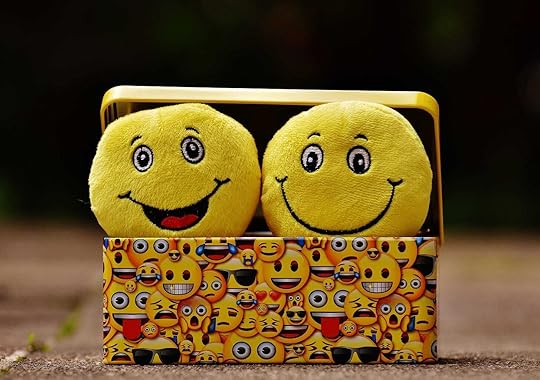
Many of our opinions on our emotions come from how we were raised as children. Your parents’ and caregivers’ actions regarding emotions taught you how to function or not function with your emotions.
As an adult, if you want to behave differently because you know the damage and chaos that emotions can cause - you’re going to have learn something new.
You’re going to have to engage with the Danger Box.You’re going to have to deal with the emotions.And you’re going to have to avoid the overwhelm.The Danger Box if not dealt with, will open on its own and when it does, you will be left with the mess.The Danger Box usually isn’t actually ‘dangerous’. What it contains are things that make you suffer and things that make you stressed.
Often holding these things in the Danger Box causes more problems than letting them out… and that’s why people don’t think they have a problem with their emotions.
However, the people who live with the consequences of having the Danger Box dumped on them: They know there’s a problem.
And they have survival systems too. They also know that you have a Danger Box and they probably know what’s in it because you dumped it on them too many times.
This is why trauma and poor emotional regulation run in families - everyone dumps their Danger Box on everyone else, instead of sorting the contents and learning how to deal with their emotions.
Share Chronic Writer by VintageInkSlinger
Thanks for reading Chronic Writer by VintageInkSlinger! Subscribe for free to receive new posts and support my work.
February 6, 2025
Survival Brain
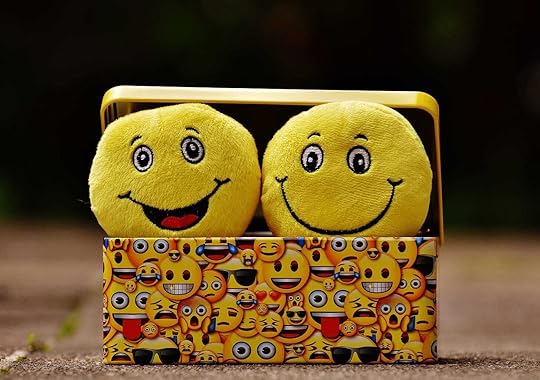
Survival Brain is a section of the brain where the emotions live.
It has one goal - to keep you alive.
To operate, Survival Brain has two boxes.
Box One says: Normal.
Box Two screams: Danger!
Survival Brain is dramatic - there is no in between.
Since Logic Brain is in charge most of the time, it downgrades the survival analysis from “Danger!”, to Abnormal.
Abnormal is that moment when you’re out of your normal. And that sounds incredibly basic but our normal is important.
Our normal is where we’re comfortable. It’s where we function at a relaxed level. Normal is where we usually feel safest.
And safety and comfort are good things.
So is stepping out of those comforts when you’re ready.
Stepping out of comforts is how we learn.
Learning is always a challenge.
For example: A stove has hot surfaces. Your baby should not be touching it. But as they grow older, you need to teach them what part of the stove to touch, how to turn it on and off, and eventually how to cook on the stove.
The stove was originally in the danger box. It was scary. It was bad to touch it because it would hurt the baby.
But as your child grew and learned, the stove became less dangerous because you taught them how to use it.
Emotions are the same. Kids learn their emotions and the emotional reactions from the adults around them.
Yet, we as adults often view our emotions as still in the Danger Box.
We fail to realize that we can take things out of the danger box as we learn and grow. (And grown ups can learn and grow.)
Survival brain may tantrum and scream about how the items you’re working with should go back in the Danger Box, especially emotional content… but as adults, we need to get out of our comfort zones and move into working with our emotions.
This is because our ability to deal with emotions directly relates to how we deal with the overwhelm and how we deal with each other as people.
Share Chronic Writer by VintageInkSlinger
Thanks for reading Chronic Writer by VintageInkSlinger! Subscribe for free to receive new posts and support my work.
A.R. Mitchell's Goodreads Page
January 30, 2025
Processing Emotions
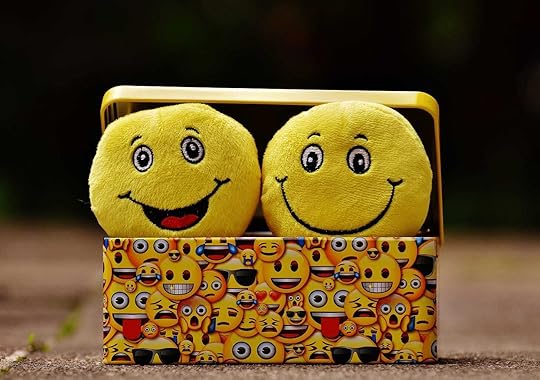
Last week I talked about overwhelm.
Overwhelm is when you as one person are in a situation that has too much for you to bear and you don’t know how to process what’s happening around you.This overwhelm forces you to deal with your emotions.I do want to say that you may ‘know’ what caused the overwhelm in a logical sense - but that’s different from the emotion.
For instance, we all have that one relative who no matter how hard you both try, it ends up that you’re both mad at each other by the end of the family gathering. And it’s always an offhand comment that makes you feel things which turn you into the ‘bad’ person for responding.
In this case you ‘know’ what happened - but you can’t always spot the set up, or the feelings that made you react in a manner that put you into overwhelm.
This is called, ‘flipping your lid.’Your logical brain - the part of the brain that deals with time, space, situational awareness and words, leaves the room when the emotions show up and reach a certain level.
This leaves your emotional brain in charge. And the emotional brain is very good at survival, but awful at engaging in a civilized manner.
Share Chronic Writer by VintageInkSlinger
Thanks for reading Chronic Writer by VintageInkSlinger! Subscribe for free to receive new posts and support my work.
A.R. Mitchell's Goodreads Page
January 23, 2025
Processing Emotions
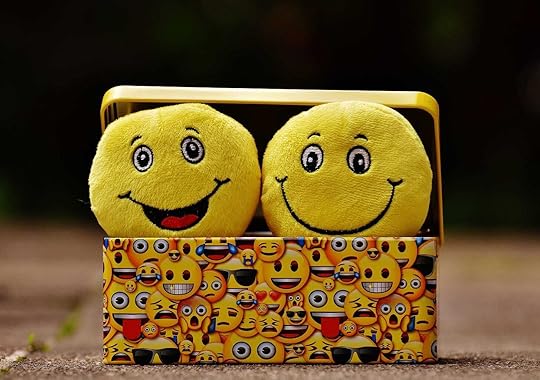
Most of us know how to be happy. We know what it feels like and we enjoy it.
Most of us know how to be angry. We know what it feels like and we sometimes know why we’re angry.
But we don’t know how to be sad. We don’t know how to deal with loss on any level.
We don’t know how to repair the relationship after the feelings hit and sometimes we can’t or we shouldn’t.
The emotions that we label ‘bad’ or difficult to deal with often come from circumstances where we are faced with something new or too overwhelming for us to handle.
What is overwhelm?Overwhelm is when you as one person are in a situation that has too much for you to bear and you don’t know how to process what’s happening around you.The circumstances of this overwhelm can be big or small. They can be under your control, or out of your control. They can environmental, (noise or movement) or they can be emotional, (the boss is angry, my child is sad).
When we reach a point of overwhelm we are not bad or incapable - it’s the overwhelm that put us in that situation. Sometimes we had a hand in creating the overwhelm - sometimes we didn’t.
This overwhelm is what tips us into being forced to deal with the emotions. And we don’t always do that well.Share Chronic Writer by VintageInkSlinger
Thanks for reading Chronic Writer by VintageInkSlinger! Subscribe for free to receive new posts and support my work.
A.R. Mitchell's Goodreads Page
January 16, 2025
Good and Bad Emotions
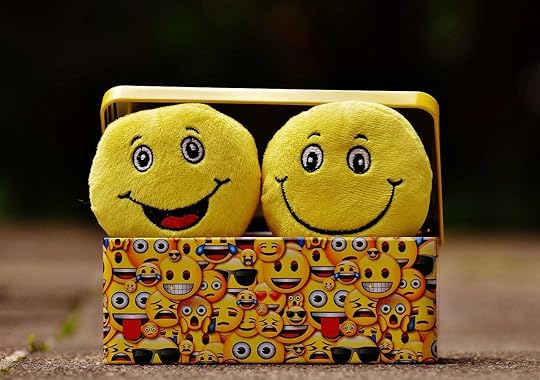
Last week I said that believing certain emotions are good or bad was a lie. We can have the emotions and not do bad things or act in hurtful ways, just like we can experience our emotions and do good things.
For instance, seeing the homeless suffering is not a good emotion. It’s difficult to have that emotional pain or discomfort and those emotions can range from sadness to disgust or fear. And those things are not easy emotions to bear - but they are not wrong to have.
We are not bad people for turning away or avoiding things that frighten or disturb us. Human suffering is difficult to deal with no matter what your reaction - people don’t want to see it because it makes them hurt or be uncomfortable.
We can also take these hard to deal with emotions and they can force us to do something good with them. In the example of the homeless suffering, we may feel uncomfortable emotions, but decide to donate or help out at a homeless shelter.
Emotions and knowing how to process them in a way that heals and ultimately helps others, is key to eliminating our own suffering at the suffering of those around us. Not in a wishy-washy way - but the better we are at processing our own emotions, the better we become at being human. And being human is a good thing.
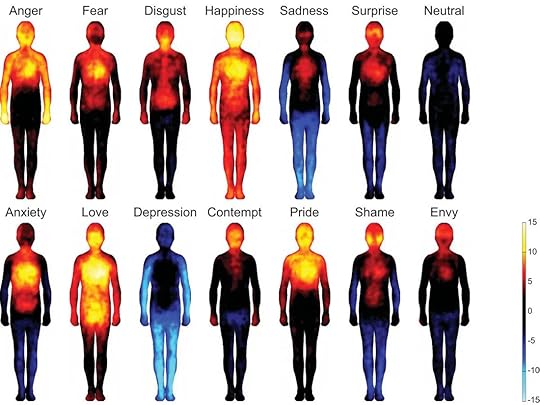
Share Chronic Writer by VintageInkSlinger
Thanks for reading Chronic Writer by VintageInkSlinger! Subscribe for free to receive new posts and support my work.
A.R. Mitchell's Goodreads Page



